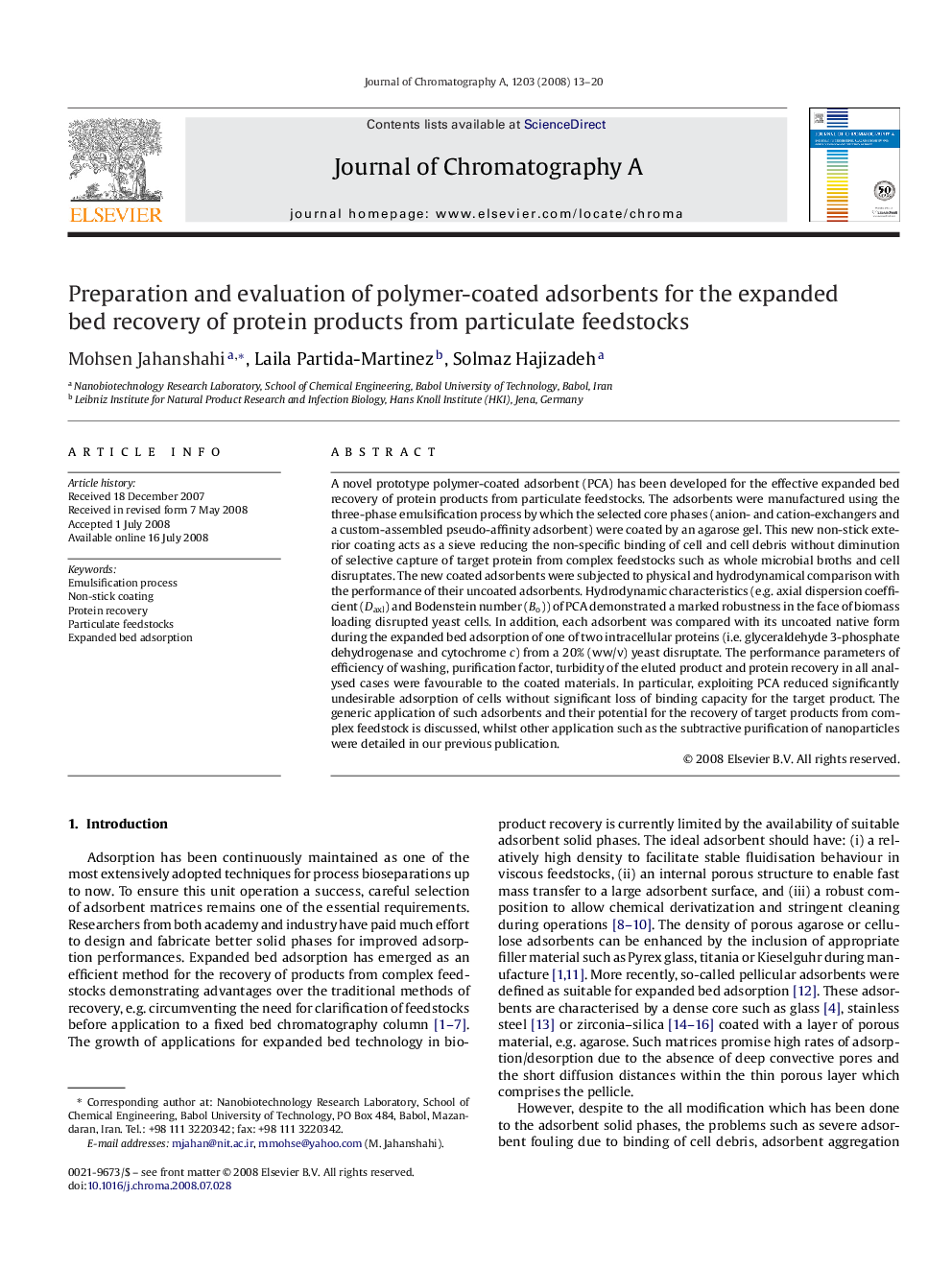| Article ID | Journal | Published Year | Pages | File Type |
|---|---|---|---|---|
| 1210829 | Journal of Chromatography A | 2008 | 8 Pages |
A novel prototype polymer-coated adsorbent (PCA) has been developed for the effective expanded bed recovery of protein products from particulate feedstocks. The adsorbents were manufactured using the three-phase emulsification process by which the selected core phases (anion- and cation-exchangers and a custom-assembled pseudo-affinity adsorbent) were coated by an agarose gel. This new non-stick exterior coating acts as a sieve reducing the non-specific binding of cell and cell debris without diminution of selective capture of target protein from complex feedstocks such as whole microbial broths and cell disruptates. The new coated adsorbents were subjected to physical and hydrodynamical comparison with the performance of their uncoated adsorbents. Hydrodynamic characteristics (e.g. axial dispersion coefficient (Daxl) and Bodenstein number (Bo)) of PCA demonstrated a marked robustness in the face of biomass loading disrupted yeast cells. In addition, each adsorbent was compared with its uncoated native form during the expanded bed adsorption of one of two intracellular proteins (i.e. glyceraldehyde 3-phosphate dehydrogenase and cytochrome c) from a 20% (ww/v) yeast disruptate. The performance parameters of efficiency of washing, purification factor, turbidity of the eluted product and protein recovery in all analysed cases were favourable to the coated materials. In particular, exploiting PCA reduced significantly undesirable adsorption of cells without significant loss of binding capacity for the target product. The generic application of such adsorbents and their potential for the recovery of target products from complex feedstock is discussed, whilst other application such as the subtractive purification of nanoparticles were detailed in our previous publication.
